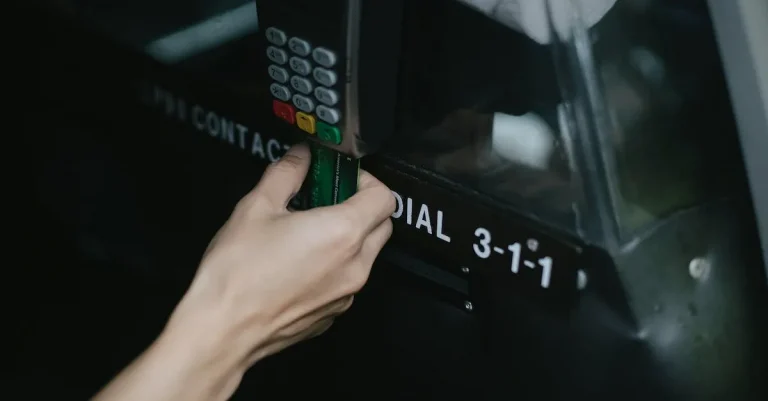What Happens If You Don’T Pay Aaron’S? Consequences And Options
Missing a payment on a lease from Aaron’s can lead to stressful situations. If you find yourself unable to make a payment, it’s important to understand the potential consequences and know your options.
If you’re short on time, here’s a quick answer to your question: If you don’t pay Aaron’s, they may charge late fees, report your late or missed payments to credit bureaus, request the items be returned, pick up the items, or even take legal action.
In this comprehensive guide, we’ll provide a detailed overview of what can happen if you fall behind on Aaron’s bill payments, including late fees, collection calls, credit impacts, item repossession, legal action, and options if you can’t pay.
Late Fees and Collection Calls
Initial Late Fee
When you don’t pay Aaron’s on time, you can expect to incur late fees. These fees are typically charged when a payment is not received by the due date. The exact amount of the initial late fee may vary based on the terms of your agreement with Aaron’s.
It’s important to note that these fees can add up quickly, so it’s in your best interest to make your payments on time to avoid unnecessary charges.
Additional Late Fees
If you continue to miss payments, additional late fees may be applied. These fees can increase the total amount you owe and make it even more difficult to catch up on your payments.
It’s essential to communicate with Aaron’s if you’re experiencing financial difficulties, as they may be able to work out a payment plan or offer other options to help you avoid accumulating additional late fees.
Collection Calls
If you consistently fail to pay Aaron’s and ignore their attempts to contact you, they may turn to collection agencies to recover the debt.
Collection agencies are third-party companies that specialize in collecting unpaid debts. They may start calling you or sending letters demanding payment.
Dealing with collection calls can be stressful and inconvenient, so it’s best to address any payment issues with Aaron’s directly to avoid reaching this stage.
Pro Tip: It’s always a good idea to read the terms and conditions of your agreement with Aaron’s to understand the late fee structure and consequences for non-payment. This can help you avoid surprises and make informed decisions about your financial obligations.
Credit Reporting
When you fail to pay your bills, such as your Aaron’s payment, it can have a negative impact on your credit score. Aaron’s, like many other creditors, reports your payment history to credit bureaus, which affects your creditworthiness.
Here’s what you can expect if you don’t pay Aaron’s:
30 Days Late
If you miss your payment by 30 days, Aaron’s may start reporting this late payment to the credit bureaus. This can result in a drop in your credit score, making it more challenging for you to obtain credit in the future.
Late payments can stay on your credit report for up to seven years, so it’s important to address the issue as soon as possible.
60 Days Late
After being 60 days late on your Aaron’s payment, the negative impact on your credit score will likely be more significant. Your creditworthiness may be further affected, making it even harder to get approved for loans, credit cards, or other forms of credit.
Additionally, the late payment may result in additional fees or penalties from Aaron’s.
90 Days Late
At the 90-day mark, the consequences of not paying Aaron’s become more severe. Aaron’s may consider your account delinquent and could take legal action to recover the owed amount.
This could potentially lead to a judgment against you, which would have a long-lasting impact on your credit score and financial reputation.
120 Days Late
When you reach 120 days past due, Aaron’s may decide to send your account to collections. This means that a third-party debt collector will take over the collection efforts.
Not only will this intensify the negative impact on your credit score, but it can also result in incessant calls from collection agencies and potential legal actions against you.
It’s important to remember that each individual’s situation may vary, and specific consequences may depend on various factors such as your payment history and the terms of your agreement with Aaron’s.
If you find yourself unable to make your Aaron’s payment, it’s crucial to communicate with the company and explore potential options to avoid or mitigate the potential consequences.
Item Repossession
When you fail to make payments on your Aaron’s lease, the company has the right to repossess the item you rented.
Repossession is a legal process in which the creditor takes back the property because the borrower has failed to meet the terms of the agreement.
Voluntary Surrender
If you find yourself unable to make payments on your Aaron’s lease, one option is to voluntarily surrender the item. This means that you contact Aaron’s and let them know that you can no longer afford to make payments and are willing to return the item.
While voluntary surrender may not completely absolve you of any financial obligations, it can potentially help you avoid some of the more severe consequences associated with involuntary repossession.
It’s important to note that even with voluntary surrender, you may still be responsible for any remaining balance on the lease.
Aaron’s may sell the repossessed item and use the proceeds to cover your debt. If there is still a balance remaining, you may be required to pay it off.
Involuntary Repossession
If you don’t take action to surrender the item voluntarily, Aaron’s may initiate the process of involuntary repossession. This means that they will send a representative to your home or place of business to take back the rented item.
In some cases, they may also involve law enforcement to assist in the process.
Involuntary repossession can have serious consequences. Not only will Aaron’s repossess the item, but they may also report the delinquency to credit bureaus, which could negatively impact your credit score.
A lower credit score can make it more difficult for you to obtain credit in the future, such as getting a loan or leasing another item.
Additionally, if Aaron’s incurs any costs during the repossession process, you may be responsible for reimbursing them. These costs can include towing fees, storage fees, and legal fees.
It’s important to understand the potential consequences of not paying Aaron’s and to explore your options if you find yourself unable to make payments. Communication is key – reaching out to Aaron’s to discuss your situation and potentially negotiate a new payment plan or alternative solution may help you avoid the more severe repercussions of repossession.
Legal Action
If you fail to pay Aaron’s, you may face legal consequences. Here are some of the possible actions that can be taken against you:
Demand Letter
The first step a creditor like Aaron’s may take is sending you a demand letter. This letter will outline the amount you owe, the due date, and the consequences of non-payment. It is important to respond to this letter promptly and address the issue to avoid further legal action.
Lawsuit
If you ignore or fail to resolve the debt after receiving a demand letter, Aaron’s may file a lawsuit against you. This means that they will take the matter to court, seeking a judgment in their favor.
It’s crucial to take legal action seriously and consult with an attorney to understand your rights and options.
Judgement
If Aaron’s wins the lawsuit, a judgment will be issued against you. This judgment legally confirms the debt owed and gives the creditor the right to pursue further action to collect the outstanding amount.
It is important to note that a judgment can have serious implications for your credit score and financial future.
Wage Garnishment
One of the ways Aaron’s can collect the debt after obtaining a judgment is through wage garnishment. This means that a portion of your wages will be deducted directly from your paycheck to satisfy the debt.
Wage garnishment can have a significant impact on your financial stability and can last until the debt is fully paid off.
It is important to remember that each case is unique, and the specific legal actions taken may vary. If you find yourself in a situation where you can’t pay Aaron’s, it is crucial to seek legal advice and explore your options for resolving the debt.
Options If You Can’t Pay
Communicate with Aaron’s
If you find yourself unable to make your payment to Aaron’s, the first step is to communicate with them. Ignoring the issue will only make it worse.
Contact Aaron’s as soon as possible to explain your situation and discuss possible solutions. They may be willing to work with you to find a resolution that works for both parties.
Extended Payment Plan
If you’re struggling financially, Aaron’s may offer an extended payment plan to help you manage your payments. This option allows you to extend the duration of your rental agreement, reducing the amount you need to pay each month.
Be sure to discuss this option with Aaron’s and understand any additional fees or charges that may apply.
Pick Up and Delivery Assistance
In some cases, Aaron’s may offer pick up and delivery assistance if you are unable to transport the rented item back to their store. This can be especially helpful if you are facing transportation challenges or if the item is too large to be easily moved.
Contact Aaron’s to inquire about this service and any associated costs.
Rent-to-Own Cancellation
If you’re unable to continue with your rent-to-own agreement, you may have the option to cancel the contract. Aaron’s may require you to return the rented item and may charge a cancellation fee.
It’s important to carefully review your contract and speak with Aaron’s to understand the specific terms and conditions associated with canceling your agreement.
Voluntary Surrender
If you’re unable to make payments and no longer wish to keep the rented item, you can choose to voluntarily surrender it to Aaron’s. This means returning the item to their store and ending your rental agreement.
While this option may still result in financial consequences, it can provide a way out if you can no longer afford the rental payments.
Bankruptcy
In extreme cases where you are facing significant financial hardship, filing for bankruptcy may be an option to consider. Bankruptcy can provide relief from debt, including outstanding rental payments.
However, it is a serious decision with long-term consequences, so it’s important to consult with a bankruptcy attorney and understand the potential impact on your financial future.
Remember, each situation is unique, so it’s essential to reach out to Aaron’s directly to discuss your specific circumstances and explore the available options. Open and honest communication is key to finding a solution that works for both parties.
Conclusion
Falling behind on Aaron’s payments can lead to late fees, credit damage, repossession, and legal action. Your best option is to communicate with them right away if you anticipate any issues paying your bill.
Aaron’s does offer some assistance programs to help avoid severe consequences like lawsuits or repossessions. Don’t ignore the situation – reach out to Aaron’s customer service as soon as possible to explain your situation and discuss options.
With open communication and prompt action, you may be able to avoid credit harm or legal action. Aaron’s would rather work out alternate payment arrangements than pursue collections.
We hope this guide gave you a better understanding of the serious repercussions of not paying Aaron’s, as well as options to avoid the harshest outcomes.










